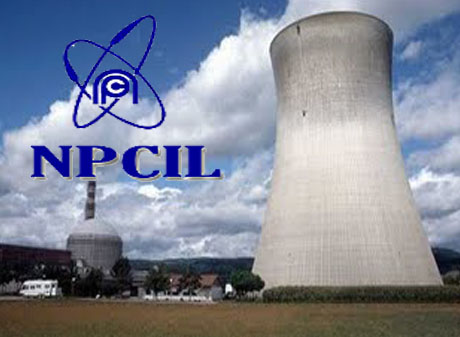Quick progress at Gujarat n-plant
 Chennai, Sep 24 : Construction work at the Rs. 11,000 crore double-unit 700 MW atomic power plant in Gujarat is progressing at a quick pace and setting up of major equipment will begin soon, a senior official of the Nuclear Power Corporation of India Ltd (NPCIL) said.
Chennai, Sep 24 : Construction work at the Rs. 11,000 crore double-unit 700 MW atomic power plant in Gujarat is progressing at a quick pace and setting up of major equipment will begin soon, a senior official of the Nuclear Power Corporation of India Ltd (NPCIL) said.
"We expect AERB's (Atomic Energy Regulatory Board) approval to begin erection of major equipment. Nearly 70 percent of the civil works have been completed," Lokesh Kumar, project director for the 3rd and 4th units of Kakrapar Atomic Power Station (KAPS) told IANS over phone from Kakrapar in Gujarat.
Already NPCIL has two units of 220 MW each at KAPS which are operating successfully with a capacity factor of around 97 percent.
A senior AERB official had earlier told IANS that the construction of the two new units at KAPS has progressed well and NPCIL would seek the regulator's permission to erect major nuclear reactor equipment.
According to Kumar, the AERB permission may come in early next month and the next six months are going to be crucial for the project.
"The project is on time and the first unit is expected to go critical in 2015. We are hopeful of completing the project three months ahead of schedule. The plant will have all the safety features recommended by a committee after the nuclear accident in Fukushima in Japan," Kumar said.
Concrete was first poured in November 2010 for the 3rd unit at KAPS and in March 2011 for the fourth unit.
For NPCIL that has been building 220 MW and 540 MW pressurised heavy water reactors (PHWRs), it is a major jump to go in for 700 MW PHWRs.
According to Kumar, major equipment have been received at the project site.
"We expect the turbine for the power plant at site in March 2014," Kumar said.
The project is expected to generate a fresh direct employment opportunities for around 500 people once the two units begin operation.
Incidentally, the two new units at KAPS are not under safeguard agreement of the International Atomic Energy Agency (IAEA).(IANS)